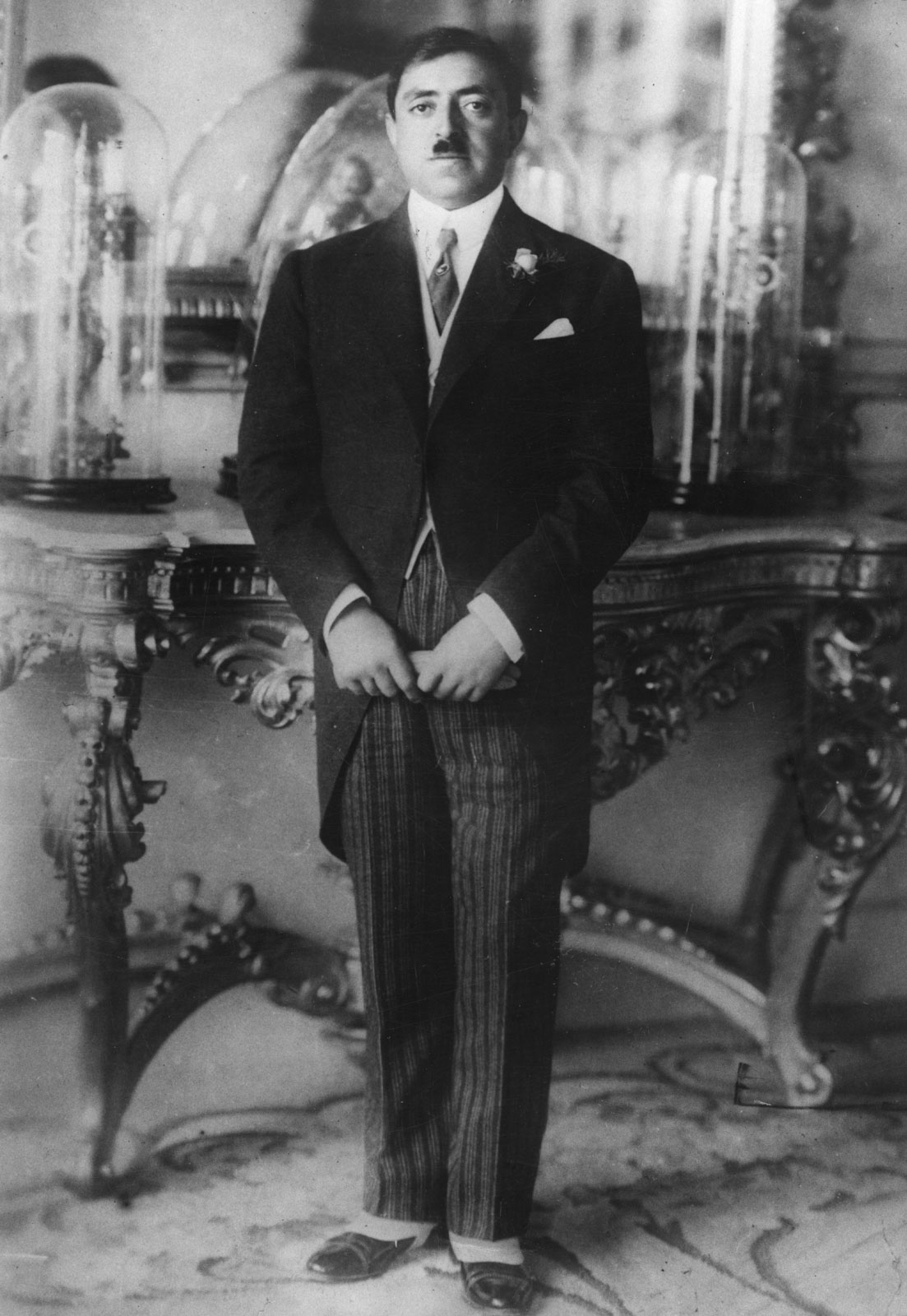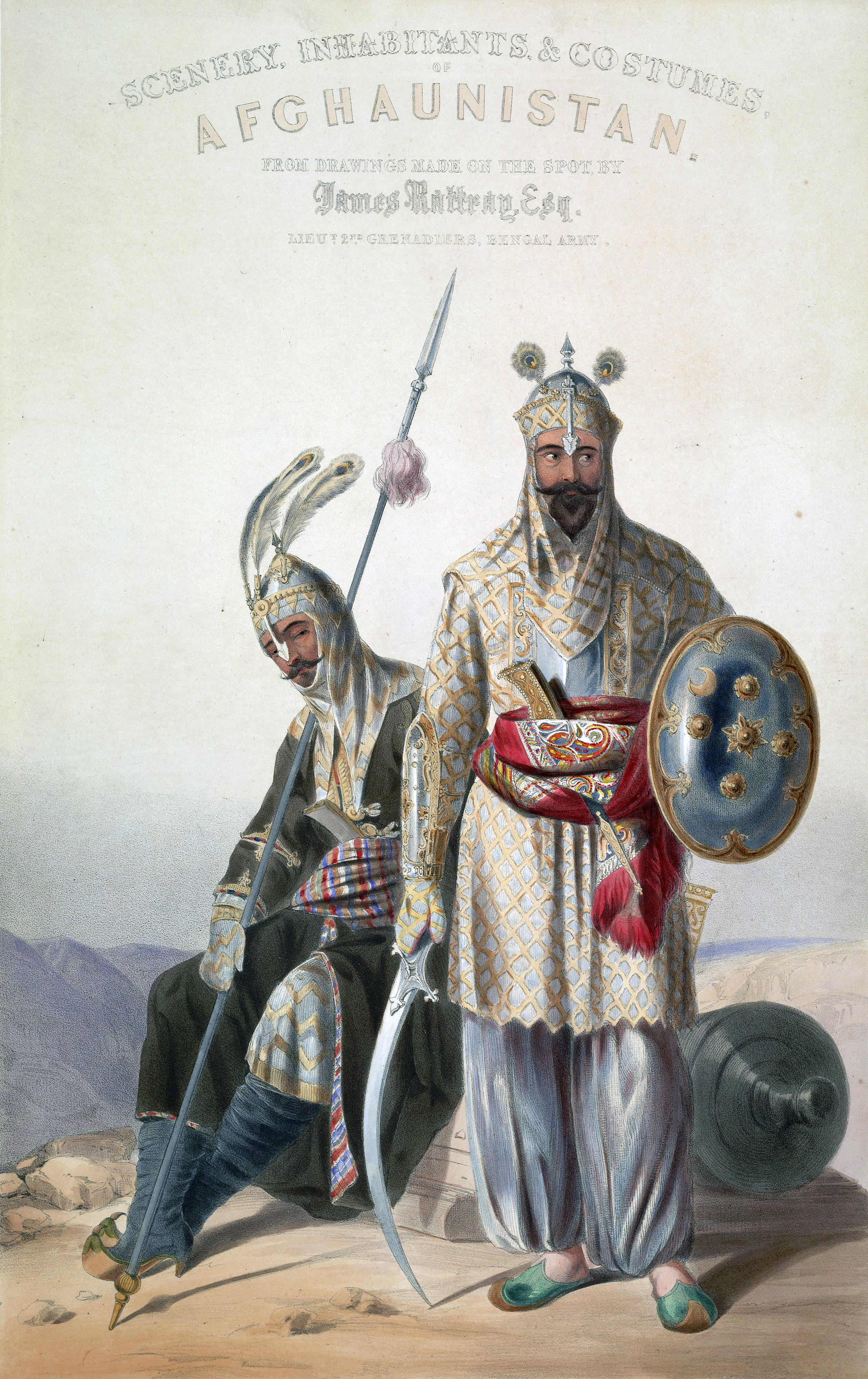|
Khost Rebellion (1924–1925)
The Khost rebellion, also known as the 1924 Mangal uprising, the Khost revolt or the Mangal Revolt was an uprising against the Westernization and modernizing reforms of Afghanistan’s king, Amanullah Khan. The uprising was launched in Southern Province, Afghanistan, and lasted from March 1924 to January 1925. It was fought by the Mangal Pashtun tribe, later joined by the Sulaiman Khel, Ali Khel, Jaji, Jadran and Ahmadzai tribes. After causing the death of over 14,000 Afghans, the revolt was finally quelled in January 1925. It was the first conflict to involve the Afghan Air Force. Background Prior to 1924, the city of Khost had rebelled twice: the first rebellion took place from 1856 to 1857 and was fought by Khostwal and Waziri tribesmen against the rule of Dost Mohammad Khan. The second rebellion took place in 1912 and was a rebellion by the Mangal, Jadran, and Ghilzai tribes against the "rapacity and exactions" of the local governor, and saw Habibullah Khan's ... [...More Info...] [...Related Items...] OR: [Wikipedia] [Google] [Baidu] |
Southern Province, Afghanistan
Southern Province is a defunct province of Afghanistan. The former province's capital was Gardez. In March 1924 it was governed by Amr al-Din. A dispute between him and a local magistrate led to the Khost rebellion, which saw the entire province rise up against King Amanullah. The rebellion lasted until January 1925, and 14,000 people perished as a result of it. In 1944–1947, the province was the scene of revolts by various tribes. As of 1946, it had a population of 882,170. It was dissolved in 1964 to create the province of Paktia Paktia ( Pashto/ Dari: – ''Paktyā'') is one of the 34 provinces of Afghanistan, located in the east of the country. Forming part of the larger Loya Paktia region, Paktia Province is divided into 15 districts and has a population of roughl .... Paktia Province Former provinces of Afghanistan References [...More Info...] [...Related Items...] OR: [Wikipedia] [Google] [Baidu] |
Ahmadzai (Ghilji Clan)
The Ahmadzai ( ps, احمدزی) is a Pashtun subtribe of the Ghilji confederacy. Ahmadzai Pashtun tribe is a Powandah tribe and are traditional nomadic merchant warriors. They are considered as the pioneers of trade among other Powandah merchant tribes. The tribe is more prosperous and are greeted with respect. Ahmadzai tribe is the largest tribe among Pashtuns. They follow Pashtunwali rigidly and are known for their Jirgahs. In history Ahmadzai are one of the strongest tribes and had control of power in Afghanistan. Ahmadzai tribe is known for their hospitality and strict code of conduct. There are some rules which no one can break and if they took responsibility they mean it. Currently, they are living in Afghanistan and Pakistan. They have properties in Islamabad and Peshawar. Large number of Ahmadzai have fought against the US invasion of Afghanistan. Traditionally, the Ahmadzai ranged from Logar to Jalalabad, but mostly in Paktia, Paktika, and Khost. A large portion of the t ... [...More Info...] [...Related Items...] OR: [Wikipedia] [Google] [Baidu] |
Wazir (Pashtun Tribe)
The Wazirs or Waziris ( ps, وزير) are a Karlani Pashtun tribe found mainly in the Pakistan-Afghanistan border region of North waziristan, South Waziristan and Bannu Ahmadzai Wazir (Domel) and Utmanzai wazir (Baka Khel and Jani Khel) The Utmanzai are settled in the North Waziristan Agency and the Ahmadzai are in the South Waziristan Agency and Bannu domel. Those subgroups are in turn divided further, for example into Utmanzai tribes such as the Baka Khel and Jani Khel. The Wazirs speak the Waziristani dialect of Pashto. The common ancestor of the Ahmadzai and Utmanzai is believed by them to be the eponymous Wazir, who is also ancestor to the Mehsud tribe that has since taken a distinct and divergent path. Through Wazir, the tribes trace their origins to Karlani and thence to the founder of the Pashtun lineage, Qais Abdur Rashid. Some western ethnologists consider them of being mix of Arachosian or Tatar ethnicity. Although the Utmanzai and Mehsud tribes have a tradition ... [...More Info...] [...Related Items...] OR: [Wikipedia] [Google] [Baidu] |
Khost Rebellion (1856–1857)
The Khost rebellion was an anti-taxation revolt that began in early 1856 in the Emirate of Afghanistan The Emirate of Afghanistan also referred to as the Emirate of Kabul (until 1855) ) was an emirate between Central Asia and South Asia that is now today's Afghanistan and some parts of today's Pakistan (before 1893). The emirate emerged from t .... After encountering minor resistance in February 1856, the rebelling Khostwal and Waziri tribesmen besieged the Khost Fort in March. Despite failed peace negotiations in July and August, the rebellion did not end until early 1857. References 1856 in Afghanistan Conflicts in 1856 1857 in Afghanistan Conflicts in 1857 History of Khost Province Military history of Afghanistan Rebellions in Afghanistan {{afghanistan-stub ... [...More Info...] [...Related Items...] OR: [Wikipedia] [Google] [Baidu] |
Jadran Tribe
The Zadran ( ps, ځدراڼ ''dzadrāṇ''; pronounced ''dzādroṇ'' in the Khost-Paktia dialect), also spelled Dzadran or Jadran, is a Pashtun tribe that inhabits the Loya Paktia region in southeastern Afghanistan (Khost, Paktia, and Paktika provinces) and parts of Waziristan in neighboring Pakistan. "Zadran: Pashtun tribe mainly residing in the “Zadran Arc” a 9-district area encompassing portions of the Khost, Paktya, and Paktika provinces." The Zadran are a branch of the Karlani tribal confederacy. They are the largest Pashtun tribal group in Afghanistan's mountainous southeastern region, usually found in areas that are unsuitable for settled agricultural production. They have a reputation for militancy dating to the Soviet–Afghan War. Well-known Taliban fighter Jalaluddin Haqqani, who in later years headed the Haqqani network, is of the Zadran tribe himself, though he is recognized for ending the '' malik'' system by forcing Mohammad Omar Babrakzai to leave Paktia pr ... [...More Info...] [...Related Items...] OR: [Wikipedia] [Google] [Baidu] |
Ali Khel
Alikhel ( ps, عليخېل) or Alikhil is a Pashtun tribe in Afghanistan, Pakistan, and India. Alikhel belongs to the tribe of the Panni confederation of Pashtuns. It is considered a "brother tribe" of the Sulaimankhel and Tanoli tribes.Neamet Ullah History of the Afghans, Bernhard Dorn, 1836, p=49 In 1924, the Alikhel joined in the Khost Rebellion initiated by the Mangal tribe. Notable members *Abassin Alikhil *Ikram Alikhil * Selsela Alikhil See also * Ali Khel, Orakzai Agency, Pakistan * Ali Khel, Jalandhar, Punjab, India * Ali Khel, a district in Ghazni, Afghanistan * Ali Khel, Waziristan, a town in Federally Administered Tribal Areas, Pakistan * Ali Khel, a town in Balochistan, Pakistan * Ali Khel, Malakand, Swat KPK, Pakistan * Ali Khel, Paktia, Afghanistan * Ali Khel, district of Laghman, Afghanistan * Ali Khel, Azakhel Bala, Nowshera of KPK province of Pakistan Pakistan ( ur, ), officially the Islamic Republic of Pakistan ( ur, , label=none), ... [...More Info...] [...Related Items...] OR: [Wikipedia] [Google] [Baidu] |
Sulaiman Khel
The Sulaimankhel ( ps, سليمان خېل), or Suleiman Khel, are a Pashtun sub-tribe of the Ghilji tribe of Bettani confederation of Pashtuns, Mostly Nomadic People. In the early 20th century, the tribe was recognised as generally pastoral. History In 1924, the Sulaimankhel joined in the Khost Rebellion initiated by the Mangal tribe. The Sulaimankhel are one of the largest Ghilji Pashtun subtribes. One of the major subtribes of suleman khel living in south Waziristan Tehsil Toi khulla (Gul kach , zarmelan, khan kot) and sultan khel have 9 subcasts (Mir khankhel, kamrani, Ya khel, dinar khel, jalal khel, bas khati, gulwal, zanki, hassan khankhel, these 9 subcasts are also living in dera ismail khan in huge nomber. Like the Ahmadzai Sulemankhel are living in Peshawar and Afghanistan. The Ahmadzais are considered different from Sulemankhel because of their close relationship with Durranis and have inter-marriages between Durranis and Ahmadzais and by not taking part in Ghilj ... [...More Info...] [...Related Items...] OR: [Wikipedia] [Google] [Baidu] |
Westernization
Westernization (or Westernisation), also Europeanisation or occidentalization (from the ''Occident''), is a process whereby societies come under or adopt Western culture in areas such as industry, technology, science, education, politics, economics, lifestyle, law, norms, mores, customs, traditions, values, mentality, perceptions, diet, clothing, language, writing system, religion, and philosophy. During colonialism it often involved the spread of Christianity. Westernization has been a growing influence across the world in the last few centuries, with some thinkers assuming Westernization to be the equivalent of modernization, a way of thought that is often debated. The overall process of Westernization is often two-sided in that Western influences and interests themselves are joined with parts of the affected society, at minimum, to become a more Westernized society, with the putative goal of attaining a Western life or some aspects of it, while Western societies are thems ... [...More Info...] [...Related Items...] OR: [Wikipedia] [Google] [Baidu] |
Afghan Air Force
The Air Force of the Islamic Emirate of Afghanistan, also referred to as the Islamic Emirate Air Force and the Afghan Air Force, is the air force branch of the Armed Forces of the Islamic Emirate of Afghanistan. The Royal Afghan Air Force was established in 1921 under the reign of King Amanullah and significantly modernized by King Zahir Shah in the 1960s. During the 1980s, the Soviet Union built up the Afghan Air Force, first in an attempt to defeat the mujahideen and in hopes that strong Afghan airpower would preserve the pro-Soviet government of Mohammad Najibullah. When Najibullah eventually fell in 1992 the Afghan Air Force may have counted 350 aircraft. The collapse of Najibullah's government in 1992 and the continuation of a civil war throughout the 1990s reduced the number of Afghan aircraft to some 35–40. During Operation Enduring Freedom in late 2001, in which the Taliban government was ousted from power, all that remained of the AAF was a few helicopters. Since 2007, ... [...More Info...] [...Related Items...] OR: [Wikipedia] [Google] [Baidu] |
Afghan Army
The Army of the Islamic Emirate of Afghanistan (), also referred to as the Islamic Emirate Army and the Afghan Army, is the land force branch of the Armed Forces of the Islamic Emirate of Afghanistan. The roots of an army in Afghanistan can be traced back to the early 18th century when the Hotak dynasty was established in Kandahar followed by Ahmad Shah Durrani's rise to power. It was reorganized in 1880 during Emir Abdur Rahman Khan's reign. Afghanistan remained neutral during the First and Second World Wars. From the 1960s to the early 1990s, the Afghan Army was equipped by the Soviet Union. After the resignation of President Najibullah in 1992, the army effectively dissolved. In 1996 the Islamic Emirate of Afghanistan (Taliban regime) took power, creating their own army, which lasted until United States invasion of Afghanistan in October–November 2001. By 2016, most of Afghanistan came under government control. However over the next few years the government slowly lost ter ... [...More Info...] [...Related Items...] OR: [Wikipedia] [Google] [Baidu] |
Mulla Abd Allah
{{dab ...
Mulla may refer to: Places *River Awbeg, in Ireland *Mulla, Afghanistan *Mollakənd, Kurdamir, Azerbaijan Other uses * Mullah, a title for an Islamic cleric * Mulla (surname), including a list of people with the name * ''Mulla'' (film), a 2008 Malayalam film * Camp Mulla, a Kenyan hip hop group See also * Mula (other) Mula may refer to: Places * Mula, Iran, a village in Mazandaran Province, Iran * Mula, Maldives, an island in the Maldives * Mula, Spain, a town in the autonomous community of Murcia, Spain * Muľa, a village and municipality in southern Slova ... [...More Info...] [...Related Items...] OR: [Wikipedia] [Google] [Baidu] |
.jpg)


